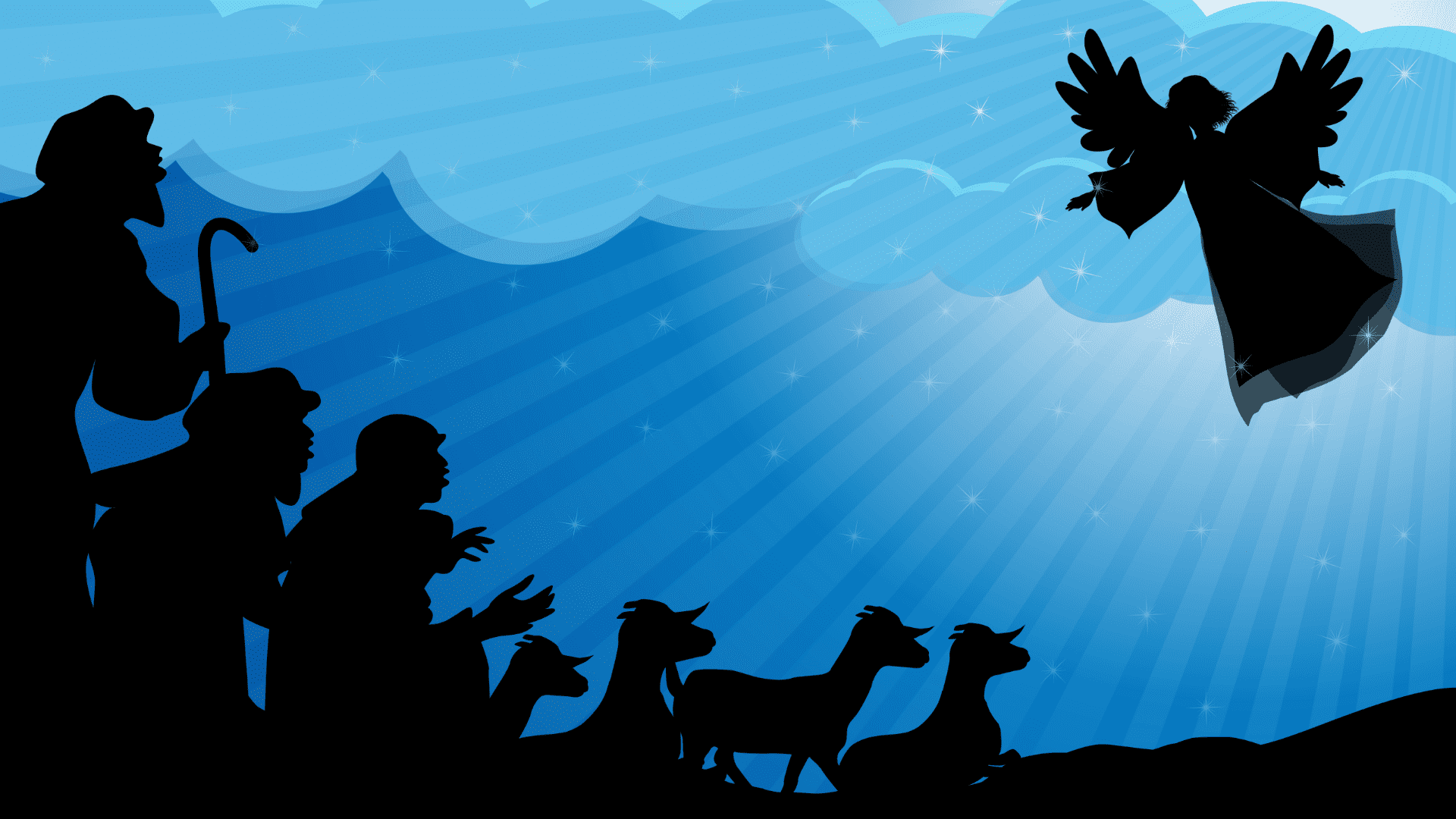They Don’t Know What They’re Doing (Luke 23:18-43)

It's the time of the year that churches all over the world are looking at the last days of Jesus before his death. We are now at the point in which Jesus has been condemned to die, and is being led to be crucified.
Our Bibles have four different accounts of this event. Each account is similar, but calls attention to different details. The Gospel writer Luke has a number of details that don't appear in any of the other accounts. One of them is the well-known prayer that Jesus offered when he was on the cross, found in Luke 23:34: "Father, forgive them, for they do not know what they are doing."
Normally we focus on the first part of this prayer: "Father, forgive them." That's an important thing to do, because forgiveness is at the heart of the cross. But we can't overlook the second part of this prayer: "for they do not know what they are doing." As Jesus walked to the cross, he saw that the people around him didn't understand what was happening. They think that they understand, but they really don't. Jesus asks God to forgive them, recognizing that they don't understand the significance of what's happening as he goes to the cross.
A couple of thousand years later, things aren't that different. The apostle Paul called the message of the cross "foolishness to those who are perishing" (1 Corinthians 1:18). I know someone who got talking about the gospel to the person sitting beside him on an airplane. "What does the execution of a Jewish man by Romans two thousand years ago have to do with me?" In a sense, he's right. What could this have to do with us? Missing the significance of the cross is just as easy today as it was two thousand years ago.
Luke helps us. Luke describes the stories of two groups of people who didn't get it, and then he offers the stories of four people who help us understand what happened at the cross. So let's look at how we miss the message of the cross, and then how we can understand the message of the cross. Everything you need to understand the cross in a way that will change your life is right before us in this passage.
Missing the Significance of the Cross
As we read this passage we saw two groups of people who didn't get it. The first is unique to Luke's gospel; the other group appears in the other gospels.
Luke describes the first group of people who didn't understand what was happening in verse 27: "A large number of people followed him, including women who mourned and wailed for him." Who are these people? Two groups. The first is just a crowd of people following along, likely curious to see what happens to Jesus. The second group consists of women who are mourning what's happening to Jesus. They're sad because of what's happening to Jesus. This is admirable. Women are highlighted as important throughout the book of Luke. Women are given a very high profile in Luke's gospel, and are presented in a very favorable light. Not once in Luke's gospel, or the other synoptic gospels (Matthew and Mark) is a woman hostile to Jesus. So you get a very favorable impression of these women.
But Jesus speaks to them, and what he says is something that we need to hear if we are to understand the cross:
Daughters of Jerusalem, do not weep for me; weep for yourselves and for your children. For the time will come when you will say, "Blessed are the childless women, the wombs that never bore and the breasts that never nursed!" Then
"'they will say to the mountains, "Fall on us!"
and to the hills, "Cover us!" '
For if people do these things when the tree is green, what will happen when it is dry? (Luke 23:28-31)
These women are mourning what's happening to Jesus. They're focused on his suffering. Surprisingly he says, "Don't feel sorry for me. Feel sorry for yourselves." Why would Jesus say this?
The reason why is the terrifying prophecy that Jesus gave in verses 29 and 30. The time is coming, Jesus says, when the normal order of things will be turned upside down. Normally, women who have children are considered blessed. The time is coming, Jesus says, in which the normal categories of who's blessed and who's cursed will be reversed. The pain will be so great that it will be better to not have a family. Death will seem like a better option than the misery they'll go through. That's how bad things will get.
What's Jesus talking about? In 70 A.D., the Roman army besieged and conquered the city of Jerusalem. Josephus claims that 1,100,000 people were killed during the siege. 97,000 were captured and enslaved. The Temple and all of Jerusalem were completely destroyed. You can understand that for the people who lived and died in that siege, it would be better not to have a family.
But Jesus looked beyond even that siege to something far more serious. Jesus quotes a passage about God's judgment from Hosea 10:8. The same passage is quoted in Revelation 6:16-17: "They called to the mountains and the rocks, 'Fall on us and hide us from the face of him who sits on the throne and from the wrath of the Lamb! For the great day of their wrath has come, and who can withstand it?'"
Who do the people want to be hidden from? The one who sits on the throne, and from the wrath of the Lamb. Who is that? Jesus. Jesus points us to the uncomfortable truth that the fate of those who reject Jesus is to be pitied even more than the fate of Jesus as he goes to the cross.
I don't think there's a person here who likes the idea of hell or judgment. It's important to note though that hell is giving people the freedom to choose life apart from him. Jesus says, you can choose hell, but over my dead body. He does everything to give us a way out of hell if we'll take it.
C.S. Lewis says:
In the long run, the answer to all those who object to the doctrine of hell, is itself a question: "What are you asking God to do?" To wipe out their past sins, and, at all costs, to give them a fresh start, smoothing every difficulty and offering every miraculous help? But He has done so, on Calvary. To forgive them? They will not be forgiven. To leave them alone? Alas, I am afraid that is what He does.
"There are only two kinds of people," he says, "those who say, 'Thy will be done' to God or those to whom God in the end says, 'Thy will be done.' All who are in Hell choose it. Without that self-choice it wouldn't be Hell." Those who reject God and what he has done in Jesus will one day face something so bad that death will look like a better option.
There's another group that doesn't get it in this passage. We read in verses 35-39:
The people stood watching, and the rulers even sneered at him. They said, "He saved others; let him save himself if he is God's Messiah, the Chosen One."
The soldiers also came up and mocked him. They offered him wine vinegar 37 and said, "If you are the king of the Jews, save yourself."
There was a written notice above him, which read: THIS IS THE KING OF THE JEWS.
One of the criminals who hung there hurled insults at him: "Aren't you the Messiah? Save yourself and us!"
Their logic went like this: If Jesus had power, he would use that power for his own benefit. He would get himself out of this mess. And because Jesus isn't out of this mess, therefore Jesus doesn't have any power, and he's a fraud. But their premise is all wrong. These people had never seen a person who had power not use it for their own benefit. But Jesus had a power that he used to save others, not himself. Jesus said, "For even the Son of Man did not come to be served, but to serve, and to give his life as a ransom for many" (Mark 10:45).
A couple of weeks ago I attended a conference. Conferences can all start to look the same after a while. This one was going down that road until the very last session. The speaker got up and asked, "Are we teaching and living a spirituality so small that people can integrate it into their lives, rather than it being their lives? Jesus did not come to improve our lives, but to be our life." He went on to say that Jesus is more than a set of self-improvement technologies, that we should never present a Jesus who is so small that he can be tucked into our comfortable lives. We cannot reduce Jesus to self-improvement techniques. Jesus did not come to make bad people good, or good people better. He came to make dead people live.
In the end, this mob had a selfish view of Jesus on the cross. They wanted Jesus to serve their agenda, and if he didn't, they weren't very interested in him. Jesus never responds to our request that he change his agenda to meet our demands. We miss the point of the cross if we come to Jesus with selfish demands as conditions of following him.
Do you know what this passage teaches us? There are two ways to miss the significance of the cross. One is to think it isn't about me; the other is to think it's all about me. It's to think that the cross has nothing to do with me, or to think that the cross is all about Jesus meeting my demands and my agenda. These are the two ways that we miss the significance of the cross: not realizing that Jesus went to the cross for me, and on the other hand, coming to the cross with demands and ultimatums rather than gratitude.
How to Understand the Message of the Cross
What's the alternative? Luke helps us to understand the cross through the eyes of four individuals: a Roman centurion, two criminals, and a Greek.
First, the centurion. As Jesus dies, we meet a centurion, a commander of 100 Roman soldiers. The centurion says in verse 47 after he sees Jesus die, "Surely this was a righteous man." He recognized Jesus' innocence. When we look at the cross we must see Jesus as the innocent. He did not die for any sins or wrongdoings on his part. The apostle Peter, who knew Jesus very well and who lived with him for three years, wrote, "He committed no sin, and no deceit was found in his mouth" (1 Peter 2:22). The Apostle Paul wrote, "God made him who had no sin to be sin for us, so that in him we might become the righteousness of God" (2 Corinthians 5:21). This centurion helps us understand the sinlessness of Jesus.
But then we have two thieves who help us understand the cross. The first is Barabbas, a man guilty of not only insurrection but murder. We read in verses 18-25 that Barabbas, the one that everyone knows is guilty, is set free, while Jesus, the innocent, is condemned to die. Every sinner, every person, is invited to see themselves in Barabbas who is set free as Jesus, the innocent, dies in our place. This is what one book calls The Great Exchange: My Sins for His Righteousness. He takes our place. He gets our sins, and we get his righteousness. As the hymn says, "Amazing love! How can it be that Thou, my God, should'st die for me?"
So Jesus is our sinless substitute. Another thief helps us see that even at the cross, in what is in many ways the most awful moment this earth has ever witnessed – the murder of God – Jesus is also the triumphant king. The thief says to Jesus in verse 42, "Jesus, remember me when you come into your kingdom." You're looking at Jesus and saying, "What kingdom?" Jesus may have looked like a king the week before as he entered Jerusalem with cheering crowds, but he hardly looks like a king now. What kingdom? But what this thief somehow recognizes is that even in the moment that looks like Jesus' greatest defeat, in the hour of his death, he is accomplishing his greatest victory. Colossians 2:15 says, "Having disarmed the powers and authorities, he made a public spectacle of them, triumphing over them by the cross." And even before Jesus has been enthroned as king, he's already extending clemency to those who ask for it.
Then finally we have Simon of Cyrene in verse 28. When criminals were led to the cross, they were made to carry the crossbeam of the cross, which was 30 or 40 pounds, to humiliate them. Jesus was so badly beaten that he couldn't do it. The Romans commandeered Simon, someone who was just passing by, to carry the cross for Jesus. What's fascinating is that his name is given because Simon seems to have become well-known within the church. Why mention the name? So you could talk to him, or to his sons. In Mark's gospel we learn that Simon is the father of Alexander and Rufus. Rufus may turn up later in the church of Rome. It seems that these names meant something to the early church, and that perhaps they became followers of Christ.
Through Simon we're reminded that Jesus said, "Whoever wants to be my disciple must deny themselves and take up their cross and follow me." Those who follow Jesus take the same path that he did: the path of giving up our lives in service for others, the path of dying to ourselves, and in the process finding real life.
There are lots of people who misunderstand the cross. Some see it as irrelevant, as having nothing to do with them. Others are selfish, and think that it's all about Jesus serving them. But Luke invites us to see the cross as the innocent taking our place, winning victory over sin and evil, and calling us to follow him. When we understand the cross as Luke describes, and as the penitent thief did, confess our guilt and ask for his clemency, then we'll really live.
What Thou, my Lord, has suffered
Was all for sinners' gain;
Mine, mine was the transgression,
But Thine the deadly pain.
Lo, here I fall, my Savior;
'Tis I deserve Thy place.
Look on me with Thy favor,
Assist me with Thy grace.





